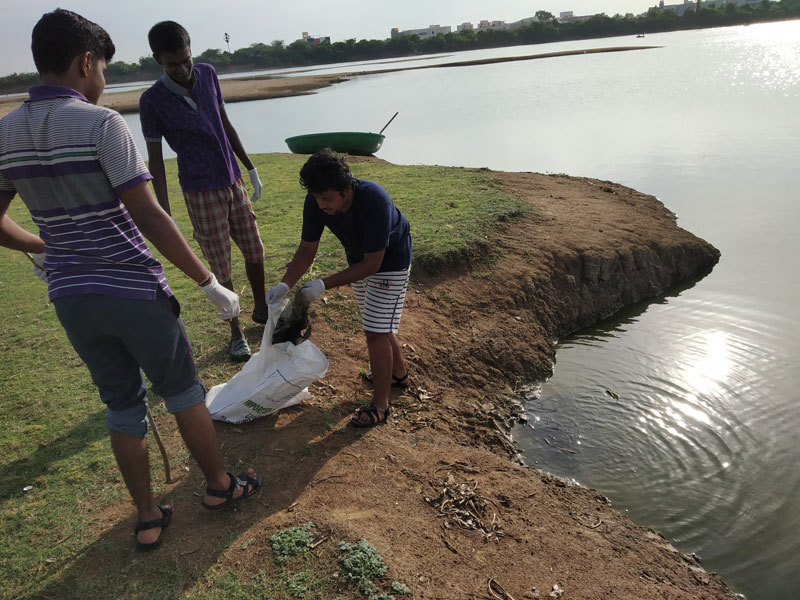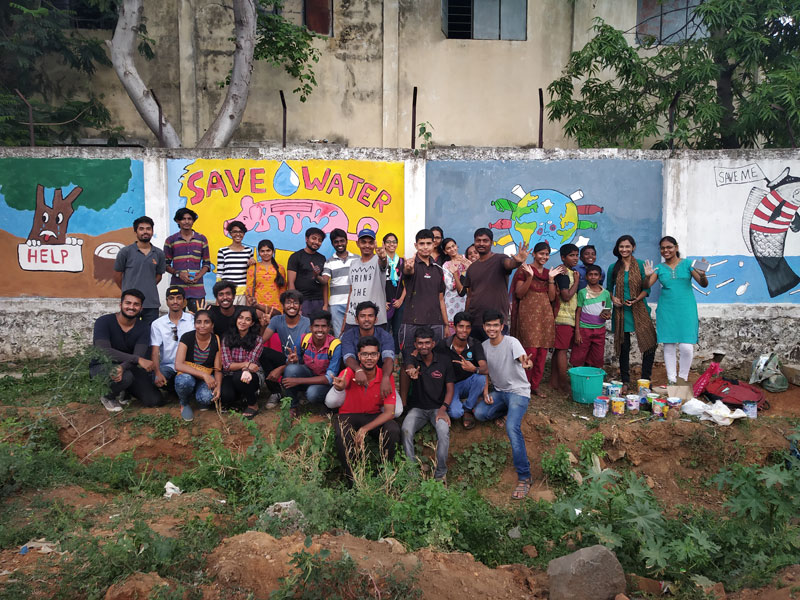Restoring lakes and cleaning school compounds
The one question that Aravindhan T, past president of Rotaract Club of Zenith, D 3232, had to answer while gathering volunteers to clean up lakes on the outskirts of Chennai, was “It’s not me that littered. So, why should I pick the trash somebody else threw?” Getting the local community involved was a difficult task. “We had to remind them that the 2015 Chennai floods could have been avoided if the city’s waterbodies were well maintained.” Constant counselling of the residents living by the lake along with the efforts of Environmentalist Foundation of India (EFI), who initiated the cause, finally led to the cleaning of 30 lakes and ponds in Chennai.

The cleaning process involves physical removal of garbage from the premises. This is where Rotaract Clubs of Zenith, AM Jain and AIHT come into the picture. “We go out there and alongside the locals clean the area,” says the past president. Following this the water samples are checked at a lab repeatedly to analyse the amount of contamination. After this the lake bed is desilted and a bund strengthening programme initiated. Native species saplings are planted around the bund. “Other things follow, but our job is to get the lake ready for desilting and ensure that the people living in the area maintain it.”
“As young men and women, our parents remember being part of cleanliness drives conducted by their schools and colleges. We have to bring back that practice,” he says, adding that most government schools on the outskirts of the city, though maintained neatly have the most “dirty compound walls. You can find broken liquor bottles outside the school and the wall is used as a urination spot. Keeping the cleanliness idea in mind, we decided to paint the compound walls of the schools under our project named Peachy Clean,” he says.

Through wall paintings the Rotaractors have tried to create awareness on topics like cleanliness, personal hygiene, the importance of conserving water and protecting trees, and how the usage of plastic affects the environment. “None of us are artists, but we decided on the mural concept, formed an outline and began painting and the paintings have turned out well. We used the walls outside the schools as a canvas to express our ideas and thoughts on cleanliness.”
All the three clubs sponsor the paints, brushes and other material required to clean and paint the walls.
